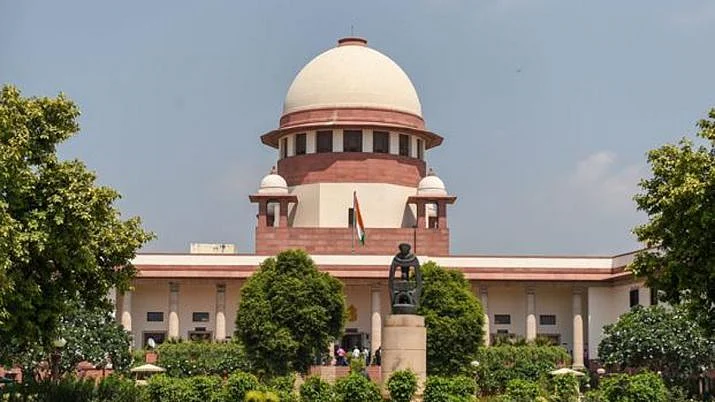SC refuses to hear plea seeking action against media for ‘communalising’ Nizamuddin Markaz issue
The petition prayed for strict action against ‘sections of media spreading bigotry and communal hatred in relation to the Nizamuddin Markaz issue’; SC says PCI must be made party

A Supreme Court bench led by Chief Justice of India, SA Bobde refused to hear the petition filed by Jamiat Ulema-e-Hind against communalization of the Nizamuddin Markaz issue unless Press Council of India (PCI) was made a party to the case. Advocate on Record Ejaz Maqbool urged the court that there was violence due to the constant news reporting around the Tableeghi Jamaat members.
However, CJI maintained in the hearing conducted through video conferencing that "we cannot curb the freedom of press", reports legal news website Barandbench.com.
Maqbool persisted with the court that in Karnataka there have been incidents of violence and names of people have been made public.
However, CJI stated that if it was a question of killing, defamation "then your remedy is somewhere else," but "if it's a question of larger reporting then PCI has to be made party."
The case is now likely to be heard next week.
The Bench led by CJI SA Bobde was hearing a plea by Jamiat Ulema-e-Hind which had claimed that the media has communalised the Nizamuddin Markaz event, where about 2,500 individuals congregated in the midst of the Coronavirus outbreak.
The plea filed by advocate Ejaz Maqbool states that reports on the Tablighi Jamaat by certain sections of print and electronic media has "demonised the entire Muslim community."
The plea further states that this demonization of the community has led to serious "threat to life and liberty of Muslims", and has thus led to the violation of their "Right to life under Article 21."
The petition says that most of the reports presented the facts in a twisted manner, using phrases like "Corona Jihad", "Corona Terrorism" or "Islamic Resurrection".
The petitioner organisation contends that if there is any delay in ordering a directive to stop communal reporting regarding the Markaz issue, it would only “promote ill-will, enmity and hatred towards the Muslim community in India.”
The petition has listed “several social media posts” which “wrongly showed Muslims doing deliberate acts to spread COVID-19.” The plea has also given links to fact check reports that have gone on to prove that such reports were malicious and “were old unrelated videos.”
Further, the plea noted that while such reports demonising the Muslim community have flooded social media, platforms like Twitter have taken no action in accordance with their standard practice and guidelines.
One of the fake social media posts highlighted in the plea was a mass Muslim religious gathering where an act of “mass sneezing” was reported. However, the petition has given links to fact check reports highlighting how it was a Sufi practice which was falsely reported as an effort to spread the Coronavirus pandemic.
The petition stated that such fake reports were in violation of the Supreme Court's order of March 31, by which the media was directed to publish “official version of reports” dealing with the COVID-19 outbreak.
It is stated, “Media was directed to maintain a strong sense of responsibility and ensure that unverified news capable of causing panic would not be disseminated.”
The petition had prayed for strict action against “sections of media spreading bigotry and communal hatred in relation to the Nizamuddin Markaz issue”. It goes on to highlight that the recent Delhi riots was one of the “worst communal riots in the Union territory’s history” and that communalising the Tablighi Jamaat meet puts the “law and order situation of the entire state" at risk.
Follow us on: Facebook, Twitter, Google News, Instagram
Join our official telegram channel (@nationalherald) and stay updated with the latest headlines
